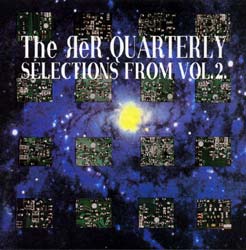
Out of Stock
Reordered on 1/15/2019 Reordered on 3/11/2019
Quantity in Basket: None
Log In to use our Wish List
Shipping Weight: 5.00 units
Sample The Album:
Robert Wyatt
Iva Bittova / Pavel Fajt
LA 1919
Jocelyn Robert
James Grigsby
J. Lachan
Henry Kaiser
Increase The Angle
Bill Gilonis
David Thomas
Jospeh Racaille
John Oswald
Musci / Venosta
Luciano Margiorani
5UU'S
When
Jean Derome
Click an artist name above to see in-stock items for that artist.
Label: Recommended Records
Catalog ID: ReR QCD2
Squidco Product Code: 1798
Format: CD
Condition: New
Released: 1991
Country: Great Britain
Packaging: Jewel Tray
| Robert Wyatt | Chairman Mao | |
| Iva Bittova/Pavel Fajt | Wedding | |
| La 1919 | Tra le Due Inghilterre | |
| Jocelyn Robert | Christi Crucifixi Untima Verba | |
| Brad Laner/James Grigsby | Pageant for Blinking signal | |
| J. Lachan | Flaubears Dancing | |
| Henry Kaiser | The Barking Dogs vs. The Minimalists | |
| Increase the Angle | Picasso's Last Stand | |
| Bill Gilonis | All Thumbs | |
| David Thomas | The Egg and I | |
| Joseph Racaille | Pegase | |
| John Oswald | Klangfarbenprobe | |
| Musci/Venosta | Warsong | |
| Luciano Margiorani | Ridens/Orbiston Parva | |
| 5UU's | In Life's Hands | |
| James Grigsby | Warheads | |
| When | Under X-Mas Tree | |
| Jean Derome | USA Intolerance ITALY Resistance GHANA Hopes |
Artist Biographies
• Show Bio for Robert Wyatt "Robert Wyatt (born Robert Wyatt-Ellidge, 28 January 1945) is an English musician, and founding member of the influential Canterbury scene band Soft Machine, with a long and distinguished solo career. He is married to English painter and songwriter Alfreda Benge. Wyatt was born in Bristol. His mother was Honor Wyatt, a journalist with the BBC, and his father, George Ellidge, was an industrial psychologist. Wyatt had two half-brothers from his parents' previous marriages, Honor Wyatt's son, actor Julian Glover, and George Ellidge's son, press photographer Mark Ellidge. His parents' friends were "quite bohemian", and his upbringing was "unconventional". Wyatt said "It seemed perfectly normal to me. My father didn't join us until I was six, and he died ten years later, having retired early with multiple sclerosis, so I was brought up a lot by women." Wyatt attended the Simon Langton Grammar School for Boys, Canterbury and as a teenager lived with his parents in Lydden near Dover, where he was taught drums by visiting American jazz drummer George Neidorf. It was during this period that Wyatt met and became friends with expatriate Australian musician Daevid Allen, who rented a room in Wyatt's family home. In 1962, Wyatt and Neidorf moved to Majorca, living near the poet Robert Graves. The following year, Wyatt returned to England and joined the Daevid Allen Trio with Allen and Hugh Hopper. Allen subsequently left for France, and Wyatt and Hopper formed the Wilde Flowers, with Kevin Ayers, Richard Sinclair and Brian Hopper. Wyatt was initially the drummer in the Wilde Flowers, but following the departure of Ayers, he also became lead singer. In 1966, the Wilde Flowers disintegrated, and Wyatt, along with Mike Ratledge, was invited to join Soft Machine by Kevin Ayers and Daevid Allen. Wyatt both drummed and shared vocals with Ayers, an unusual combination for a stage rock band. In 1970, after chaotic touring, three albums and increasing internal conflicts in Soft Machine, Wyatt released his first solo album, The End of an Ear, which combined his vocal and multi-instrumental talents with tape effects. A year later, Wyatt left Soft Machine and, besides participating in the fusion bigband Centipede and drumming at the JazzFest Berlin's New Violin Summit, a live concert with violinists Jean-Luc Ponty, Don "Sugarcane" Harris, Michał Urbaniak and Nipso Brantner, guitarist Terje Rypdal, keyboardist Wolfgang Dauner and bassist Neville Whitehead, formed his own band Matching Mole (a pun, "machine molle" being French for 'Soft Machine'), a largely instrumental outfit that recorded two albums. In 1966, the Wilde Flowers disintegrated, and Wyatt, along with Mike Ratledge, was invited to join Soft Machine by Kevin Ayers and Daevid Allen. Wyatt both drummed and shared vocals with Ayers, an unusual combination for a stage rock band. In 1970, after chaotic touring, three albums and increasing internal conflicts in Soft Machine, Wyatt released his first solo album, The End of an Ear, which combined his vocal and multi-instrumental talents with tape effects. A year later, Wyatt left Soft Machine and, besides participating in the fusion bigband Centipede and drumming at the JazzFest Berlin's New Violin Summit, a live concert with violinists Jean-Luc Ponty, Don "Sugarcane" Harris, Michał Urbaniak and Nipso Brantner, guitarist Terje Rypdal, keyboardist Wolfgang Dauner and bassist Neville Whitehead, formed his own band Matching Mole (a pun, "machine molle" being French for 'Soft Machine'), a largely instrumental outfit that recorded two albums. The injury led Wyatt to abandon the Matching Mole project, and his rock drumming (though he would continue to play drums and percussion in more of a "jazz" fashion, without the use of his feet). He promptly embarked on a solo career, and with musician friends (including Mike Oldfield, Ivor Cutler and Henry Cow guitarist Fred Frith) released his solo album Rock Bottom on 26 July 1974. The album, the title of which was an oblique reference to his paraplegia, was largely composed prior to Wyatt's accident. The album was met with mostly positive reviews. Two months later Wyatt put out a single, a cover version of "I'm a Believer", which hit number 29 in the UK chart. Both were produced by Pink Floyd drummer Nick Mason. There were strong arguments with the producer of Top of the Pops surrounding Wyatt's performance of "I'm a Believer," on the grounds that his use of a wheelchair 'was not suitable for family viewing', the producer wanting Wyatt to appear on a normal chair. Wyatt won the day and 'lost his rag but not the wheelchair'. A contemporary issue of New Musical Express featured the band (a stand-in acting for Mason), all in wheelchairs, on its cover. Wyatt subsequently sang lead vocals on Mason's first solo album Fictitious Sports in 1981 (with songwriting credits going to Carla Bley). His follow-up single, a reggae ballad remake of Chris Andrews's hit "Yesterday Man", again produced by Mason, was eventually given a low-key release, "the boss at Virgin claiming that single was 'lugubrious', the delay and lack of promotion denting Wyatt's chances of a follow-up hit." Wyatt's next solo album, Ruth Is Stranger Than Richard (1975), produced by Wyatt apart from one track produced by Mason, was more jazz-led, with free jazz influences. Guest musicians included Brian Eno on guitar, synthesizer and "direct inject anti-jazz ray gun". Wyatt went on to appear on the fifth release of Eno's Obscure Records label, Jan Steele/John Cage: Voices and Instruments (1976), singing two Cage songs. Throughout the rest of the 1970s Wyatt guested with various acts, including Henry Cow (documented on their Concerts album), Hatfield and the North, Carla Bley, Eno, Michael Mantler, and Roxy Music guitarist Phil Manzanera, contributing lead vocals to lead track "Frontera", from Manzanera's 1975 solo debut Diamond Head. In 1976 he was featured vocalist on Michael Mantler's settings of the poems of Edward Gorey, appearing alongside Terje Rypdal (guitar) Carla Bley (piano, clavinet, synthesizer), Steve Swallow (bass) and Jack DeJohnette (drums) on the album 'The Hapless Child and Other Stories'. His solo work during the early 1980s was increasingly politicised, and Wyatt became a member of the Communist Party of Great Britain. In 1983, his original version of Elvis Costello and Clive Langer's Falklands War-inspired song "Shipbuilding", which followed a series of political cover-versions (collected as Nothing Can Stop Us), reached number 35 in the UK Singles Chart and number 2 in John Peel's Festive Fifty for tracks from that year. In 1984 Wyatt provided guest vocals, along with Tracey Thorn and Claudia Figueroa, on "Venceremos" (We Will Win), a song expressing political solidarity with Chilean people suffering under Pinochet's military dictatorship, released as a single by UK soul-jazz dance band Working Week, also included on an album released the following year. In 1985 Wyatt released Old Rottenhat, his first album of original songs since Rock Bottom. The album featured strongly political songs with relatively sparse arrangements played largely by Wyatt alone. In the late 1980s, after collaborations with other acts such as News from Babel, Scritti Politti, and Japanese recording artist Ryuichi Sakamoto, he and his wife Alfreda Benge spent a sabbatical in Spain, before returning in 1991 with a comeback album Dondestan. His 1997 album Shleep was also praised. In 1999 he collaborated with the Italian singer Cristina Donà on her second album Nido. In the summer of 2000 her first EP Goccia was released and Wyatt made an appearance in the video of the title track. Wyatt contributed "Masters of the Field", as well as "The Highest Gander", "La Forêt Rouge" and "Hors Champ" to the soundtrack of the 2001 film Winged Migration. He can be seen in the DVD's Special Features section, and is praised by the film's composer Bruno Coulais as being a big influence in his younger days. [...]" ^ Hide Bio for Robert Wyatt • Show Bio for Henry Kaiser "Henry Kaiser (born September 19, 1952) is an American guitarist and composer, known as an idiosyncratic soloist, a sideman, an ethnomusicologist, and a film score composer. Recording and performing prolifically in many styles of music, Kaiser is a fixture on the San Francisco Bay Area music scene. He is considered a member of the "second generation" of American free improvisers. He is married to Canadian artist Brandy Gale. In 1977, Kaiser founded Metalanguage Records with Larry Ochs (Rova Saxophone Quartet) and Greg Goodman. In 1979 he recorded With Friends Like These with Fred Frith, a collaboration that lasted for over 20 years. In 1983 they recorded Who Needs Enemies, and in 1987 the compilation album With Enemies Like These, Who Needs Friends? They joined with fellow experimental musicians John French, and English folk-rocker Richard Thompson to form French Frith Kaiser Thompson for two eclectic albums, Live, Love, Larf & Loaf (1987) and Invisible Means (1990). In 1999 Frith and Kaiser released Friends and Enemies, a compilation of their two Metalanguage albums along with additional material from 1984 and 1999. In 1991, Kaiser went to Madagascar with guitarist David Lindley. They recorded roots music with Malagasy musicians and discovered music that, he says, "changed us radically and permanently". Three volumes of this music were released by Shanachie under the title A World Out of Time. In 1994 he made a similar trip to Norway, again with Lindley, recording music that was released as Sweet Sunny North (2 volumes, 1994 and 1996). Since 1998, Kaiser has been collaborating with trumpeter Wadada Leo Smith in the "Yo Miles!" project, releasing a series of tributes to Miles Davis's 1970s electric music. This shifting aggregation has included musicians from the worlds of rock (guitarists Nels Cline, Mike Keneally and Chris Muir, drummer Steve Smith), jazz (saxophonists Greg Osby and John Tchicai), avant-garde (keyboardist John Medeski, guitarist Elliott Sharp), and Indian classical music (tabla player Zakir Hussain). Kaiser has appeared on more than 250 albums and scored dozens of TV shows and films, including Werner Herzog's Encounters at the End of the World (2007). He was given a Grammy Award for his work on the Beautiful Dreamer tribute to Stephen Foster. In 2001, Kaiser spent two and a half months in Antarctica on a National Science Foundation Antarctic Artists and Writers Program grant. He has subsequently returned for nine more visits to work as a research diver. His underwater camera work was featured in two Herzog films, The Wild Blue Yonder (2005) and Encounters at the End of the World (2007), which he also produced, and for which he and Lindley composed the score. Kaiser served as music producer for Herzog's Grizzly Man (2005). He was nominated for an Academy Award for his work as a producer on Encounters at the End of the World." ^ Hide Bio for Henry Kaiser • Show Bio for Bill Gilonis "Bill Gilonis (born 1958) is an English guitarist and composer. He co-founded the gritty experimental rock group The Work in 1980 with Tim Hodgkinson. The group was active intermittently until 1993, recording four albums and touring extensively, including in Russia, Japan, Finland, Yugoslavia and Switzerland. Gilonis has also worked as a producer, sound engineer and/or musician with (among others): Robert Wyatt, News from Babel (Chris Cutler, Lindsay Cooper, Zeena Parkins, Dagmar Krause), David Thomas, Peter Blegvad, Ut, Lindsay Cooper Film Music Group, Hail and The Hat Shoes (with Catherine Jauniaux, Tom Cora, Charles Hayward, and others). Other projects include: writing and recording the music for Frida Béraud's one-woman theatre piece, Aus den Haaren gezogen; a collaboration with Anja Burse on Wild Thing, an audio-visual installation piece; and a multi-media piece for the Val de Travers exhibition about Absinthe in Neuchatel, Switzerland (with Luigi Archetti, Jeroen Visser and Julien Baillod). He has been living in Zurich since 1993 where he has mixed and/or produced CDs by Swiss bands such as No Secrets in the Family, The Jellyfish Kiss and Lödig. His most recent recordings have been Zürich-Bamberg (Ad Hoc, 2008), a CD of electroacoustic compositions (together with Canadian composer Chantale Laplante), and Calvary Greetings by the Anglo-Dutch-American band Stepmother (with Lukas Simonis, Jeroen Visser and Dave Kerman) - a reunion of an 80s band that never existed (but should have): twangy guitars, nifty keyboards, zany drumming, vocal histrionics à la The Rutles (well, sort of), lop-sided rhythms, regurgitated spam lyrics. In 2009, together with Alex Julyan, he published a book "Lost in Translation", on Lost & Found Publishing." ^ Hide Bio for Bill Gilonis • Show Bio for David Thomas "David Lynn Thomas (born 1953) is an American singer, songwriter and musician based in Great Britain. He was one of the founding members of the short-lived proto-punkers Rocket from the Tombs (1974-1975), in which he played under the moniker "Crocus Behemoth," and of post-punk group Pere Ubu (1975-present, intermittently). He has also released several solo albums. Though primarily a singer, he sometimes plays melodeon, trombone, musette, guitar or other instruments. Thomas has described his artistic focus as being the "gestalt of culture, geography and sound". Common themes crop up throughout much of his work, such as the US Interstate Highway system, images of roadside or "junk" tourist culture, Brian Wilson, AM radio, birds, and many others. Thomas has a distinctive, high pitched voice; Emerson Dameron described Thomas's singing as "James Stewart trapped in an oboe", and Greil Marcus writes, "Mr Thomas's voice is that of a man muttering in a crowd. You think he's talking to himself until you realize he's talking to you." Thomas was an early member of Rocket from the Tombs, which disbanded after about a year. Along with Rocket from the Tombs guitarist Peter Laughner, he then formed Pere Ubu, which was originally active from 1975 to 1982. Afterwards, Thomas worked with a variety of musicians including guitarists Richard Thompson and Philip Moxham, and Henry Cow alumni bassonist/oboist Lindsay Cooper and drummer Chris Cutler. Initially, his solo recordings eschewed Pere Ubu's "rock" focus. Lindsay Cooper's bassoon was often prominent, and, when Richard Thompson's guitar was not featured, the guitar would be absent (such as the entirety of 1985's More Places Forever). Thomas's lyrics became increasingly whimsical, and birds became a common theme: Somewhere along the line, I wrote a song that had birds in it. And then by pure coincidence, another. Some critic asked, "Why all these songs about birds?" And I said to myself, "You think that's a lot of songs about birds?!? I'll show you a lot of songs about birds!" So, for a while, I stuck birds in everywhere I could. Eventually, several former members of Pere Ubu gravitated into Thomas's group, and by the time of 1987's Blame the Messenger, were sporting a sound distinctly similar to the former band. This fact along with other considerations led directly into the official reformation of Pere Ubu in 1987, and the group has remained active to the present day. Thomas appears to have been at one point a Jehovah's Witness, an affiliation that has been reflected lyrically in the final song of Pere Ubu's 1979 album New Picnic Time, originally titled "Jehovah's Kingdom Come!" However, in subsequent releases of the album, the song has been re-titled "Hand A Face A Feeling" and then "Kingdom Come"; in the albums' lyric sheet, maintained by Thomas on Pere Ubu's official website, the titular line has been changed to "God's Kingdom Come"; the song itself has been re-mixed to remove references to Jehovah. Thomas's solo activities were diminished, though not extinguished, by the reformation of Pere Ubu. Throughout the 1980s, Thomas maintained a rotating trio dubbed the Accordion Club, which at various times included John Kirkpatrick, Chris Cutler, Garo Yellin, and Ira Kaplan. While these groupings tended to share a repertoire with Pere Ubu, the focus was smaller. Thomas stated: "I often use the same songs in both projects ... I can explore the stories behind the songs. I can extend/expand/interpolate those stories." Though the Accordion Club never recorded any albums, two songs appeared on Rē Records Quarterly Vol.2 No.1, and it led to the formation of Thomas's current "solo" project, the Two Pale Boys. Devoted to "spontaneous song generation", they feature Keith Moliné on guitar and Andy Diagram on "trumpet through electronics;" both make frequent use of MIDI, giving them a broader tonal palette than might be expected from two instruments. In addition to singing Thomas frequently plays melodeon. Says Thomas: Pere Ubu is a big rock experience, often overwhelming in its power and intensity of dataflow. It's a Hollywood blockbuster on a cinemascopic screen. Projects like the [Two Pale Boys] are intended as indy arthouse films. Thomas typically has a large number of ongoing projects at any one time. He has performed in theatrical productions, including several productions by Hal Willner, and a London West End production of Shockheaded Peter. He has delivered his lecture "The Geography of Sound in the Magnetic Age" at Clark University and UCLA, among other venues. He has staged his "improvisational opera" Mirror Man at venues in Europe and North America, featuring at various times contributions from many of his previous collaborators, as well as Linda Thompson, Bob Holman, Robert Kidney, Van Dyke Parks, Frank Black, George Wendt, and Syd Straw. In 2010 he performed with the backing of Australian band The Holy Soul. Most recently he has alternated recording and performances primarily between Pere Ubu, David Thomas and Two Pale Boys, and the reunited Rocket from the Tombs." ^ Hide Bio for David Thomas • Show Bio for John Oswald "John Oswald (born May 30, 1953 in Kitchener, Ontario) is a Canadian composer, saxophonist, media artist and dancer. His best known project is Plunderphonics, the practice of making new music out of previously existing recordings (see sound collage and musical montage). Oswald coined the term "plunderphonics" to describe his craft in a paper called "Plunderphonics, or Audio Piracy as a Compositional Prerogative" which he presented at the Wired Society Electro-Acoustic Conference in Toronto in 1985. Inspired by William S. Burroughs' cut-up technique, Oswald had been devising plunderphonic-style compositions since the late 1960s. In an interview with Norman Igma following the release of the Plunderphonics EP in 1988, he described the concept as follows: A plunderphone is a recognizable sonic quote, using the actual sound of something familiar which has already been recorded. Whistling a bar of "Density 21.5" is a traditional musical quote. Taking Madonna singing "Like a Virgin" and rerecording it backwards or slower is plunderphonics, as long as you can reasonably recognize the source. The plundering has to be blatant though. There's a lot of samplepocketing, parroting, plagiarism and tune thievery going on these days which is not what we're doing. Plunderphonics is related to but distinct from sampling used in genres such as hip-hop. His 1975 track "Power" married frenetic Led Zeppelin guitars to the impassioned exhortations of a Southern US evangelist years before hip hop discovered the potency of the same (and related) ingredients. Similarly, his 1990 track "Vane", which pitted two different versions of the song "You're So Vain" (the Carly Simon original and a cover by Faster Pussycat) against each other, was a blueprint for the contemporary pop subgenre, 'glitch pop' or 'mashup (music)'. In 1980, Oswald founded the Mystery Tapes Laboratory, which created unnamed, unattributed works on cassette, described on the plunderphonics website as "little boxes of sonifericity specifically formulated for the curious listener. Available in your choice of aural flavors: subliminal, blasted, excerpted, repeatpeateatattttttedly, these cinemaphonically-concocted aggregates of très different but exquisitely manifest, unprecedentedly varied festerings of audio quality fine magnetic cassette tapes are the best of whatever you've been listening for". Oswald continues to be Director of Research at Mystery Tapes. His greatest source of controversy was the 1988 release of the Plunderphonics EP, which he distributed to the press and to radio stations. It contained four plundered tracks: "Don't" by Elvis Presley which included piano accompaniment by Bob Wiseman, "Pocket" by Count Basie, a version of Dolly Parton singing "The Great Pretender" in which "she gets to sing a duet with himself(sic)", and "Spring", a version of Igor Stravinsky's The Rite of Spring. In 1989, Oswald released an expanded version of the Plunderphonics album containing twenty-five tracks, each using material from a different artist. In 1990, notice was given to Oswald by the Canadian Recording Industry Association on behalf of several of their clients (notably Michael Jackson, whose song "Bad" had been cut up, layered, and rearranged as "Dab") that all undistributed copies of Plunderphonics be destroyed under threat of legal action. An excerpt from a press release on the plunderphonics website is repeated below: "I wasn't selling the disc in the stores, so I let listeners tape it off the radio for free," explains Oswald, who paid for the production and manufacture of the CD out of his own pocket. He receives no royalties or financial compensation for airplay. Brian Robertson, president of CRIA says, ``What this demonstrates is the vulnerability of the recording industry to new technology...All we see is just another example of theft." Oswald received notice from CRIA's lawyers demanding that he cease distributing Plunderphonic as of Xmas eve '89. "They insisted I quit playing Santa Claus," Oswald observes. In 1993 Oswald released Plexure. Arguably his most ambitious composition to date, it attempted to microsample the history of CD music up to that point (1982-1992) in a 20 minute collage of bewildering complexity. The ambition of this piece would later be recalled by the British bootlegger Osymyso, whose "Intro-Inspection" emulates the pop-junkie feel of Plexure. From 1993-1996, Oswald worked on and released Grayfolded, a 2-Disc set commissioned by the Grateful Dead consisting of pieces created from over 100 performances of the song "Dark Star". Oswald initially created and released disc 1, "Transitive Axis", which contains a 59 minute 59 second work in 9 movements. Feeling that there was more territory to explore, Oswald worked on disc 2, Mirror Ashes, which is a composition in "6*" movements. Once both discs were complete they were packaged together with extensive liner notes and a "visual time map" of the sources used in the compositions. Grayfolded was selected the #1 international recording of the decade by the Toronto Sun. In addition to his extensive work in "plunderphonics", Oswald is also involved with acoustic music, as a composer and improviser. His compositions for orchestra often do include electronic elements, such as Concerto for Wired Conductor and Orchestra (?), but has also composed for acoustic ensembles, such as Acupuncture (1991). Oswald improvises with the saxophone, and is a member of free improvisation group CCMC. Oswald is also actively involved in dance, as a composer for dance works, as a collaborator with choreographers, and as an active Contact Improviser. Oswald founded the record label fony, which produced the retrospective box set 69 plunderphonics 96 (a.k.a. Plunderphonics 69/96) and reissued Grayfolded. The label also rereleased Plexure and released Aparanthesi, a work which uses the single note A in an experiment with timbre, dynamics, and layering, on CD in 2003. Since 2000 Oswald has as active in exhibiting his visual art as in continuing his musical activities. In 2004, Oswald was one of six artists to win the annual Governor General's Awards in Visual and Media Arts, as awarded by the Canada Council for the Arts, for lifetime achievement." ^ Hide Bio for John Oswald • Show Bio for Jean Derome "Jean Derome. Born Montréal, Québec, 1955. esidence: Montréal, Québec. Composer, Performer (saxophones (alto, baritone, soprano), flutes (flute, bass flute, piccolo, alto flute, recorders), keyboards, small wind instruments (ocarinas, jew's harp, game calls, toys...), percussion, invented instruments, voice) One of the most active and eclectic musicians on the Canadian creative music scene, Jean Derome has managed to earn the recognition of a larger public, a rare feat in that field. Thanks to his large-scale musique actuelle projects, his compositions, his work as an improviser, his jazz groups and his music for the screen and the stage, Derome ranks as a major creative force, in Québec and abroad. He is experienced and innovative on both saxophone and flute, and his unique writing style cannot be mistaken for anyone else's. Sensitive and powerful, his music often features a funny strike that makes its complex nature more inviting. Ever since Nébu (one of Québec's first avant-garde jazz groups) in the early '70s, Derome has been consistently renewing and diversifying his approach of composition. He impressed audience and critics first with the flute, then with the saxophone, as a lead character in the musique actuelle underground. He took part to the various artists' collectives looking for new ways to express themselves freely, without esthetic or social constraints, including the Ensemble de musique improvisée de Montréal. Later, in the early '80s, he co-founded Ambiances Magnétiques, a collective and record label that raised his profile at home and introduced his name to the outside world. Among his numerous projects, let us mention the duos Les Granules, Nous perçons les oreilles and Plinc! Plonc!, the dynamic group Jean Derome et les Dangereux Zhoms, and the large-scale projects Confitures de gagaku, Je me souviens - Hommage à Georges Perec and Canot-camping. Most of these projects are based on a unique form of synergy between composition, structured improvisation and genuine creative madness, all this articulated with unmatched playfulness. In 1992, Derome became the second artist to be presented with the Freddie Stone Award (bassist Lisle Ellis was the first). Besides improvising on a regular basis with Ambiances Magnétiques' members and appearing in their projects, Derome has also shared the stage with several musicians of international stature, among others Fred Frith, Lars Hollmer, Louis Sclavis and Han Bennink. He performs regularly all over Canada, in the US and in Europe. He received a Prix Opus in 2001 for his exposure abroad. Lately, jazz circles have been praising his undisputable qualities as a jazzman, thanks to the Thelonious Monk tribute project Évidence, the Normand Guilbeault Ensemble (whose Mingus Erectus CD is devoted to Charles Mingus' music), and the much-lauded Derome Guilbeault Tanguay Trio. Although Jean Derome writes tirelessly for his own projects, he is much in demand in the fields of film, theatre and dance. A short list of this side of his work would have to include his numerous scores for the National Film Board of Canada (NFB), especially for films by John Walker, Jacques Leduc, Fernand Bélanger and animated films by Pierre Hébert, Michèle Cournoyer and Jean Detheux; his incidental music for Théâtre UBU, Théâtre de Quat'Sous and Théâtre du Nouveau Monde; not forgetting his work with several top choreographers, including Louise Bédard, Andrew de Lotbinière Harwood, Daniel Soulières and Ginette Laurin. Other music ensembles have commissioned works from him, including Tuyo, Bradyworks, the Hard Rubber Orchestra from Vancouver and Fanfare Pourpour. Incidentally, Derome is the musical director of the latter. Over thirty years of music and 70 record credits later, Jean Derome still has sleeves bursting with tricks." ^ Hide Bio for Jean Derome
12/17/2025
Have a better biography or biography source? Please Contact Us so that we can update this biography.
12/17/2025
Have a better biography or biography source? Please Contact Us so that we can update this biography.
12/17/2025
Have a better biography or biography source? Please Contact Us so that we can update this biography.
12/17/2025
Have a better biography or biography source? Please Contact Us so that we can update this biography.
12/17/2025
Have a better biography or biography source? Please Contact Us so that we can update this biography.
12/17/2025
Have a better biography or biography source? Please Contact Us so that we can update this biography.
Track Listing:
Robert Wyatt
Iva Bittova / Pavel Fajt
LA 1919
Jocelyn Robert
James Grigsby
J. Lachan
Henry Kaiser
Increase The Angle
Bill Gilonis
David Thomas
Jospeh Racaille
John Oswald
Musci / Venosta
Luciano Margiorani
5UU'S
When
Jean Derome
Before April-2006
Recommended Records
Jean Derome
Wyatt, Robert
Various Artists & Compilations
Before April-2006
Search for other titles on the label:
Recommended Records.







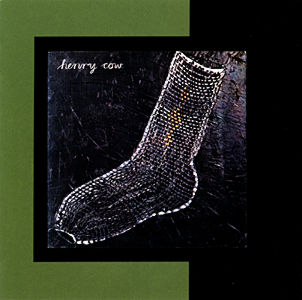

![HobbyHouse (Mia Dyberg / Axel Filip): HobbyHouse [CD + DOWNLOAD]](https://www.teuthida.com/productImages/misc4/36944.jpg)
![Mines, Kelsey / Erin Rogers: Scratching At The Surface [CD + DOWNLOAD]](https://www.teuthida.com/productImages/misc4/36945.jpg)
![Nebbia, Camila (feat/ Marilyn Crispell / Lesley Mok): A Reflection Distorts Over Water [CD + DOWNLOAD]](https://www.teuthida.com/productImages/misc4/36946.jpg)
![Vanheerentals, Adia: Taking Place [CD + DOWNLOAD]](https://www.teuthida.com/productImages/misc4/36947.jpg)
![Mines, Kelsey / Vinny Golia: Collusion and Collaboration [CD + DOWNLOAD]](https://www.teuthida.com/productImages/misc4/36948.jpg)
![Parkins, Zeena: Lament For The Maker [CD + DOWNLOAD]](https://www.teuthida.com/productImages/misc4/36949.jpg)
![Evans, Peter / Mike Pride : A Window, Basically [CD + DOWNLOAD]](https://www.teuthida.com/productImages/misc4/36950.jpg)


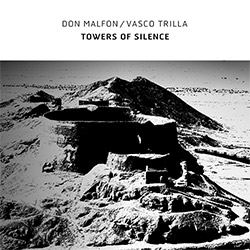
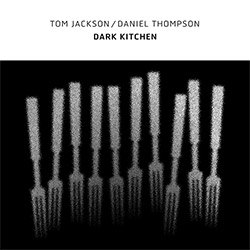
![Frey, Jurg : Composer, Alone [3 CDs]](https://www.teuthida.com/productImages/misc4/36927.jpg)
![Belorukov, Ilia / Alex Riva: Wrestling For Futility [CASSETTE w/DOWNLOAD]](https://www.teuthida.com/productImages/misc4/36994.jpg)
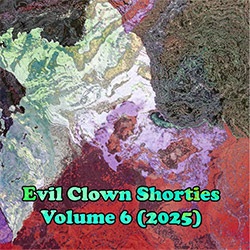
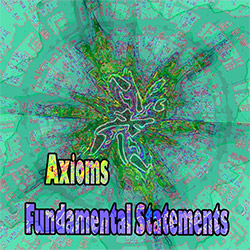










![Agnel, Sophie: Learning [VINYL]](https://www.teuthida.com/productImages/misc4/36841.jpg)

![Monaco, Amanda (w/ Michael Attias / Sean Conly / Satoshi Takeishi) : Deathblow [VINYL+ DOWNLOAD]](https://www.teuthida.com/productImages/misc4/36956.jpg)
![Frey, Jurg with ensemble]h[iatus: Je Laisse A La Nuit Son Poids D](https://www.teuthida.com/productImages/misc4/36988.jpg)
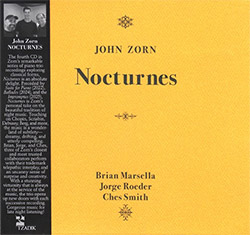
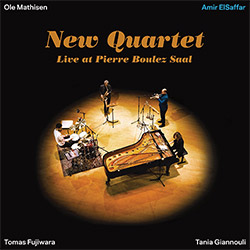
![ElSaffar, Amir / New Quartet : Live at Pierre Boulez Saal [VINYL]](https://www.teuthida.com/productImages/misc4/36830.jpg)

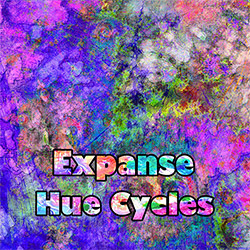
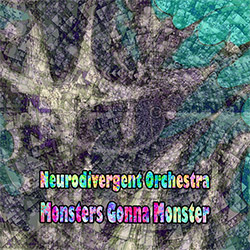
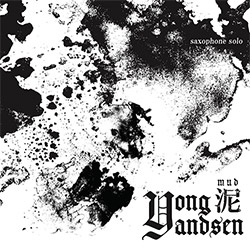

![Musicworks Magazine: #152 Fall 25 [MAGAZINE + CD]](https://www.teuthida.com/productImages/misc4/37004.jpg)
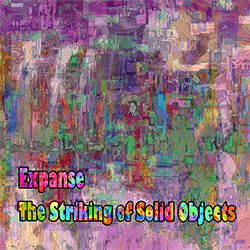




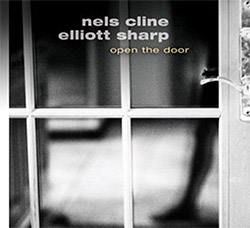
![[ahmed] (Thomas / Grip / Gerbal / Wright): Sama](https://www.teuthida.com/productImages/misc4/36976.jpg)

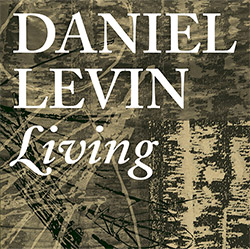
![Cleaver, Gerald / Brandon Lopez / Hprizm: In The Wilderness [COLOR VINYL]](https://www.teuthida.com/productImages/misc4/33060.jpg)
![McPhee, Joe : Defiant Jazz: a Joe McPhee Taster [VINYL]](https://www.teuthida.com/productImages/misc4/36859.jpg)
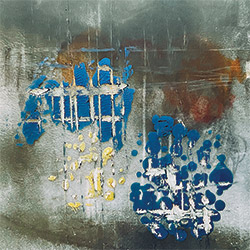
![Mateen, Sabir / Patrick Holmes / Federico Ughi : Survival Situation [LTD VINYL LP + DOWNLOAD]](https://www.teuthida.com/productImages/misc4/29891.jpg)
![Tucker, Dave / Pat Thomas / Thurston Moore / Mark Sanders: Educated Guess Vol. 1 [COLORED VINYL]](https://www.teuthida.com/productImages/misc4/30183.jpg)
![Sarian, Michael / Matthew Putman: A Lifeboat (Part I) [COLORED VINYL]](https://www.teuthida.com/productImages/misc4/30426.jpg)

![Genthon, Anouck / Lionel Marchetti: Suite Blanche [2 CDs]](https://www.teuthida.com/productImages/misc4/36642.jpg)
![Toeplitz, Kasper T.: Erosions Programmees [CD + BOOKLET]](https://www.teuthida.com/productImages/misc4/36639.jpg)
![Gate, The : Amost Live [CASSETTE + MAGAZINE]](https://www.teuthida.com/productImages/misc4/36836.jpg)






![A Magic Whistle: The Solar Cell [VINYL]](https://www.teuthida.com/productImages/misc4/36658.jpg)

![McGee, Hal: Columbus Expedition [Cassette w/ Download]](https://www.teuthida.com/productImages/misc4/36650.jpg)


![Jaeger, Kassel: Fernweh [VINYL 2 LPs]](https://www.teuthida.com/productImages/misc4/36541.jpg)





![+DOG+: The Light Of Our Lives [2 CDs]](https://www.teuthida.com/productImages/misc4/36009.jpg)


![Eternities: Rides Again [CASSETTE]](https://www.teuthida.com/productImages/misc4/36247.jpg)

![Lopez, Francisco: Untitled (2021-2022) [2 CDs]](https://www.teuthida.com/productImages/misc4/36438.jpg)





![Pisaro-Liu, Michael: Within (2) / Appearance (2) [2 CDs]](https://www.teuthida.com/productImages/misc4/36831.jpg)










![Musicworks Magazine: #151 Summer 25 [MAGAZINE + CD]](https://www.teuthida.com/productImages/misc4/36559.jpg)

![Brown, Dan / Dan Reynolds: Live At The Grange Hall [unauthorized][CASSETTE]](https://www.teuthida.com/productImages/misc4/36245.jpg)


![Zorn, John: The Song of Songs [CD + CD BOOK]](https://www.teuthida.com/productImages/misc4/36923.jpg)

![Coultrain: Mundus [COLORED VINYL]](https://www.teuthida.com/productImages/misc4/33056.jpg)
![Hprizm: Signs Remixed [COLORED VINYL]](https://www.teuthida.com/productImages/misc4/30635.jpg)
![Halls Of the Machine: All Tribal Dignitaries [CASSETTE w/ DOWNLOAD]](https://www.teuthida.com/productImages/misc4/36134.jpg)



![Koenjihyakkei: Live at Club Goodman [2 CDs]](https://www.teuthida.com/productImages/misc4/36111.jpg)

![Sorry For Laughing (G. Whitlow / M. Bates / Dave-Id / E. Ka-Spel): Rain Flowers [2 CDS]](https://www.teuthida.com/productImages/misc4/35985.jpg)

![Rolando, Tommaso / Andy Moor : Biscotti [CASSETTE w/ DOWNLOADS]](https://www.teuthida.com/productImages/misc4/36106.jpg)


![Electric Bird Noise / Derek Roddy: 8-10-22 [CD EP]](https://www.teuthida.com/productImages/misc4/35970.jpg)








![Elephant9 : Mythical River [VINYL]](https://www.teuthida.com/productImages/misc4/34624.jpg)



![Elephant9 with Terje Rypdal: Catching Fire [VINYL 2 LPs]](https://www.teuthida.com/productImages/misc4/35355.jpg)
![Coley, Byron: Dating Tips for Touring Bands [VINYL]](https://www.teuthida.com/productImages/misc4/17906.jpg)

![Lost Kisses: My Life is Sad & Funny [DVD]](https://www.teuthida.com/productImages/misc4/lostKissesDVD.jpg)